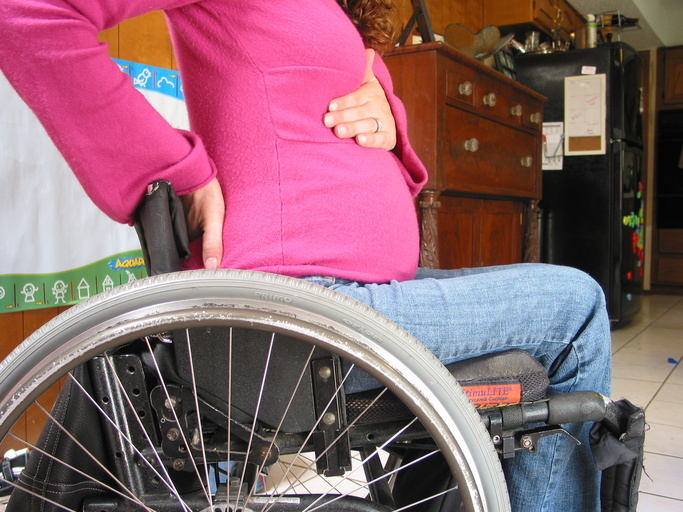
Women with physical disabilities encounter significant barriers to accessing maternity care. These barriers include inaccessible health care settings, inaccessible transportation, and clinicians who may not understand the interactions between their disabilities and their pregnancy. Often, social and attitudinal barriers present more of a challenge than physical barriers.
In order to understand how clinicians can provide quality perinatal care to women with physical disabilities, Smeltzer et al. (2016) conducted a study that interviewed 25 women with physical disabilities. During the interviews, women suggested best practices for clinicians working with pregnant women with physical disabilities.
Best Practices for Clinicians Working with Pregnant Women with Physical Disabilities
Create an environment of mutual respect
Women with disabilities respect clinicians’ expertise and want to listen to suggestions. Understand the woman’s individual experiences and how they can affect their perinatal health. Keep an open mind and respect the woman’s desire to have children.
Ask questions
If you are unfamiliar with a specific condition, ask the woman about it. Women with disabilities know their bodies best and are often knowledgeable about their conditions. When in doubt, ask the woman what works best for her.
Plan Ahead
Be prepared to do some background research on the woman’s disabling condition and its impact on pregnancy and childbirth. Get as much information as you can about labor and delivery. Consult with clinicians expertised in the woman’s disabling condition and consider a team approach to the woman’s care. Ensure that any consultation with other clinicians, such as anesthesiologists, takes place well in advance and consider involving clinicians with relevant expertise in the process of labor and delivery as needed.
Mothers with disabilities are women and mothers first
Recognize and remove bias and judgment when working with women with disabilities. Women with disabilities want to raise children and give them the best life possible just like any other women. Respect their autonomy and support their decision to have children.
Adapted from Smeltzer, Mitra, Iezzoni, Long-Bellil, and Smith. (2016). Perinatal Experiences of Women with Physical Disabilities and Their Recommendations for Clinicians. JOGNN, 45, 781–789.
